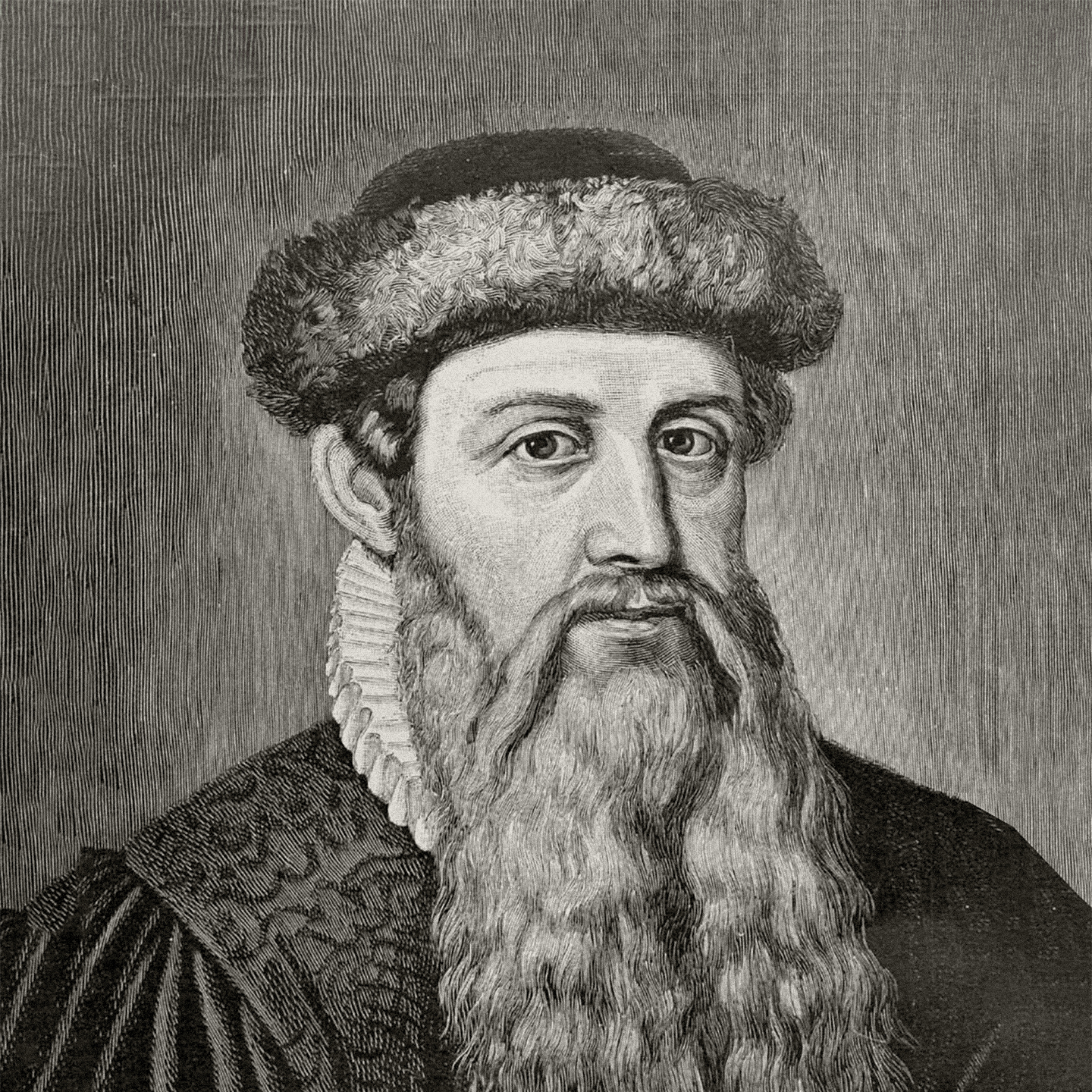William Morris
British
1834–1896
Kelmscott Press

Johannes Gutenberg revolutionized the world with his invention of the movable type printing press, democratizing knowledge and laying the foundation for modern typography and mass communication.
Johannes Gutenberg (c. 1400–1468) was a German inventor, printer, and goldsmith whose development of the movable type printing press around 1440 transformed the production of books. Born in Mainz, Germany, he began experimenting with printing techniques in the 1430s, combining metal type, a press adapted from wine-making, and oil-based ink to produce books efficiently. His most famous work, the Gutenberg Bible (c. 1455), showcased the precision and beauty of his press, setting a standard for printed works. Despite financial struggles and legal disputes with partners, Gutenberg’s innovation spread rapidly across Europe, fueling the Renaissance, Reformation, and scientific revolution. He died in Mainz in 1468, leaving a legacy as the catalyst for the age of mass literacy and information.
At a Glance
Behind every typeface is a journey. This story map traces the events, relationships, and ideas that shaped the designer’s life and work.
